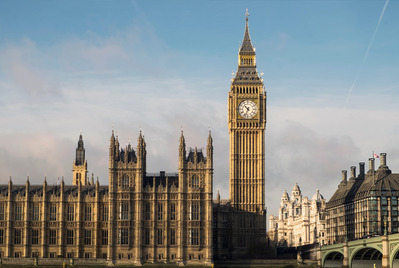The Ultimate Guide to
the Renters' Rights
Act (2025)
The Renters' Rights Bill (2025) has received Royal Assent as of the 27th of October 2025. Now known as the Renters' Rights Act, it introduces significant changes to the private rental market, enhancing tenant protections and imposing new responsibilities on landlords. This guide outlines the key changes and their implications.

What is the Renters' Rights Act?
The Renters' Rights Act aims to make renting more secure, affordable, and fair. It introduces new rules regarding evictions, rent increases, tenancy agreements, and landlord responsibilities, providing tenants with greater protection while ensuring landlords remain compliant.
Royal Assent was granted on 27th October 2025. The Renters' Rights Bill is now the Renter's Rights Act.
Commencement date for the Renters' Rights Act will be the 1st of May 2026.
Initially proposed by the previous Conservative government, the Bill has undergone changes under Labour.
Timeline for the Renters' Rights Act

What are the implications of the Renters' Rights Act for the different stakeholders?
Key Changes
Abolishing Section 21: No More No-Fault Evictions
- By abolishing Section 21, landlords can no longer evict tenants without a valid reason.
- Landlords will have to issue a Section 8 notice citing the valid reason and providing evidence thereof.
- New guidelines will specify acceptable reasons for eviction, providing tenants with greater security.
Transition to Periodic Tenancies
- Fixed-term Assured Shorthold Tenancies (ASTs) will be replaced with Assured Periodic Tenancies.
- This means that tenancies will continue on a rolling basis until the tenant decides to leave or the landlord establishes a valid reason for possession.
- Expected notice periods are two months notice for tenants, and four months for landlords.
Stricter Rules on Rent Increases (Section 13)
- Rent increase clauses are prohibited; landlords must issue a Section 13 notice for rent increases.
- Increases are limited to once per year and capped at market levels.
- Tenants must receive advance notice of any rent increase.
Prohibition of Large Upfront Rent Payments
- Upfront rent payments are capped at one month's rent to remove financial barriers for tenants.
- Greater reliance on guarantors will be necessary, affecting overseas tenants and those with insufficient credit history.
- A ban on bidding wars.
Right to Keep Pets
- Tenants can request permission to keep pets, and landlords must consider these requests reasonably.
- Tenants will not be required to take out insurance to cover potential damage caused by pets, however, landlords may be able to charge up to 3 weeks rent as a returnable deposit.
Establishment of a Private Rented Sector Ombudsman
- An independent ombudsman will resolve disputes between landlords and tenants, offering an alternative to court proceedings.
Introduction of a Privately Rented Property Portal
- A new portal will inform landlords about their legal obligations and assist tenants in making informed housing decisions.
- All private landlords will be required to register with the private landlord database.
Better Housing Standards – the Decent Homes Standard
- Rental properties must meet minimum quality and safety criteria.
- Local authorities will have increased power to enforce these standards.
Renters' Rights Act FAQs
The Renters' Rights Act (2025) represents a significant shift in the rental market, aiming to create a fairer and more secure environment for tenants while ensuring landlords adhere to new regulations.
If you are confused by any of the language being used about the Renters' Rights Bill, now the Renters' Rights Act, we have created a Renters' Rights Act Glossary to help. Alternatively please contact your local letting agent.
Are you ready for the Renters' Rights Act?
The Renters’ Rights Act is a landmark reform of rental legislation in England. It aims to:
- Strengthen tenant protections and housing security
- Replace outdated tenancy models with a simpler, fairer system
- Improve living standards across the private rented sector
- Streamline how disputes are resolved
- Support responsible property management by landlords
Section 21, often called the “no-fault eviction” rule, allowed landlords to evict tenants without justification. Its removal will:
- Prevent unfair or retaliatory evictions
- Give tenants greater peace of mind and housing stability
- See our full guide to Section 21 abolishment.
All tenancies will become periodic, meaning:
- No fixed end date
- Tenants can leave with two months’ notice
- Landlords must provide a valid legal reason to end a tenancy.
This creates a more flexible and transparent system for everyone involved.
An independent ombudsman will be introduced to:
- Offer free, impartial, and binding dispute resolution
- Help resolve issues without going to court
- Be available to all private landlords, regardless of portfolio size
The Bill introduces a Decent Homes Standard for private rentals, ensuring all properties:
- Are safe and free from serious hazards
- Are warm, energy-efficient, and well-maintained
Yes, but with new protections:
- Rent increases are limited to once per year
- Landlords must give two months’ notice
- Tenants can challenge excessive increases through a First-tier Tribunal
The government is modernising the system by:
- Streamlining possession proceedings
- Reducing delays through improved court efficiency
- Introducing digital tools for faster resolution
Yes. To make renting more accessible:
- Landlords can request no more than one month’s rent in advance
- This helps prevent renters from being priced out by high upfront costs
The Renters' Rights Act laws will commence on the 1st of May 2026. There may be further rollouts after this, but most of the laws will kick in then.
Yes. Tenants will have the right to request a pet, and landlords:
- Cannot unreasonably refuse
- May require pet insurance to cover potential damage
The Renters' Rights Act includes tailored provisions for students, allowing:
- Fixed-term contracts for purpose-built student housing
- Clearer rules on notice periods and tenancy terms
Yes. Landlords must:
- Provide at least 24 hours’ notice before entering a property
- Have a valid reason, such as repairs or safety checks
A new national database will:
- Register all private landlords
- Monitor compliance with safety and housing standards
- Enhance transparency and enforcement
Latest blogs
See more of our blogs on Renters' Rights

What does the Renters' Rights Bill mean for pet owners?

Landlord fines to increase under the Renters' Rights Bill

Will the Renters' Rights Bill become an Act this month?

